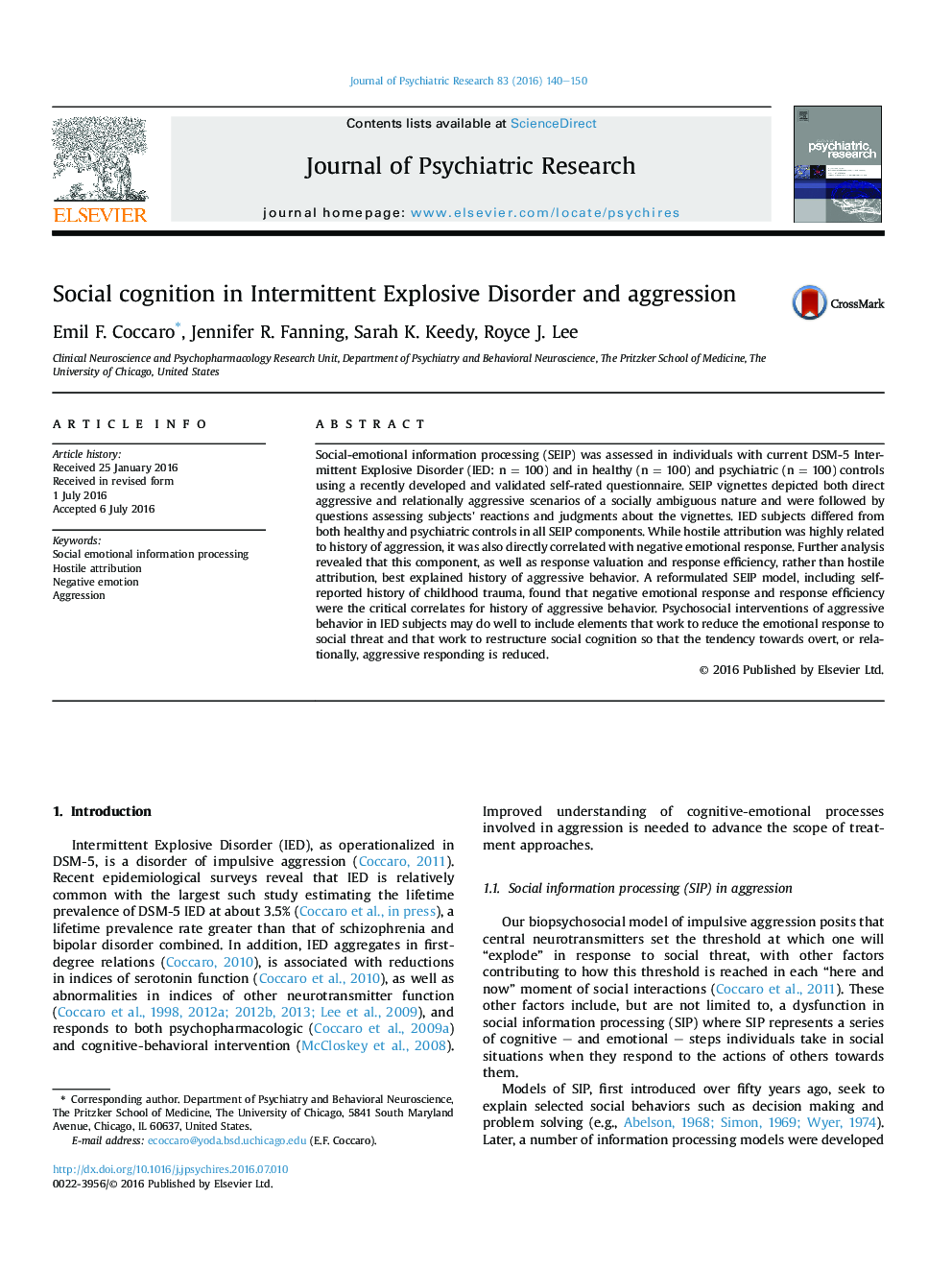| کد مقاله | کد نشریه | سال انتشار | مقاله انگلیسی | نسخه تمام متن |
|---|---|---|---|---|
| 6799831 | 862791 | 2016 | 11 صفحه PDF | دانلود رایگان |
عنوان انگلیسی مقاله ISI
Social cognition in Intermittent Explosive Disorder and aggression
ترجمه فارسی عنوان
شناخت اجتماعی در اختلال انفجاری متناوب و تجاوز
دانلود مقاله + سفارش ترجمه
دانلود مقاله ISI انگلیسی
رایگان برای ایرانیان
کلمات کلیدی
پردازش اطلاعات عاطفی اجتماعی، شناسایی خصمانه، احساسات منفی، پرخاشگری
موضوعات مرتبط
علوم زیستی و بیوفناوری
علم عصب شناسی
روانپزشکی بیولوژیکی
چکیده انگلیسی
Social-emotional information processing (SEIP) was assessed in individuals with current DSM-5 Intermittent Explosive Disorder (IED: n = 100) and in healthy (n = 100) and psychiatric (n = 100) controls using a recently developed and validated self-rated questionnaire. SEIP vignettes depicted both direct aggressive and relationally aggressive scenarios of a socially ambiguous nature and were followed by questions assessing subjects' reactions and judgments about the vignettes. IED subjects differed from both healthy and psychiatric controls in all SEIP components. While hostile attribution was highly related to history of aggression, it was also directly correlated with negative emotional response. Further analysis revealed that this component, as well as response valuation and response efficiency, rather than hostile attribution, best explained history of aggressive behavior. A reformulated SEIP model, including self-reported history of childhood trauma, found that negative emotional response and response efficiency were the critical correlates for history of aggressive behavior. Psychosocial interventions of aggressive behavior in IED subjects may do well to include elements that work to reduce the emotional response to social threat and that work to restructure social cognition so that the tendency towards overt, or relationally, aggressive responding is reduced.
ناشر
Database: Elsevier - ScienceDirect (ساینس دایرکت)
Journal: Journal of Psychiatric Research - Volume 83, December 2016, Pages 140-150
Journal: Journal of Psychiatric Research - Volume 83, December 2016, Pages 140-150
نویسندگان
Emil F. Coccaro, Jennifer R. Fanning, Sarah K. Keedy, Royce J. Lee,
